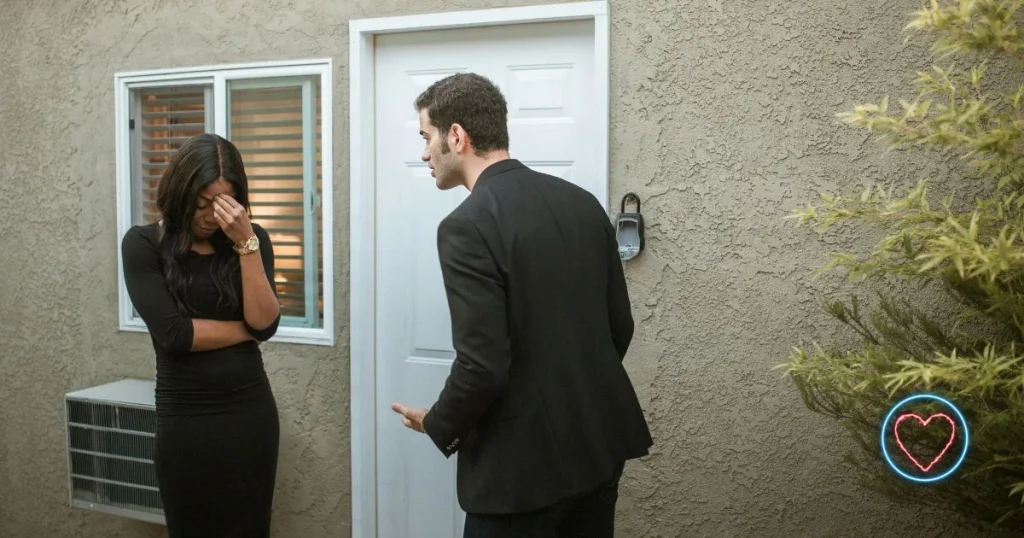In today’s hyperconnected world, relationships face more external pressure than ever before. Social media, work stress, family interference, financial challenges, and even well-meaning friends can subtly or directly threaten a couple’s bond. Yet, some couples seem to stand unshaken. They navigate crises, rumors, and temptations with remarkable unity. Their secret? They know how to protect their relationship from outside threats.
These couples don’t rely solely on love. Instead, they consciously build habits and strategies that create a protective shield around their partnership. Let’s explore the seven ways strong couples safeguard their love against external pressures—and how you can apply them to your own relationship.
1. They Build an Unbreakable Foundation of Trust
Trust is the backbone of every strong relationship. Without it, even minor outside influences can breed suspicion and distance. But trust isn’t something that magically appears—it’s carefully cultivated through consistent honesty, accountability, and vulnerability.
How They Do It:
- Radical honesty: Strong couples share their fears, desires, and mistakes openly. They don’t hide financial struggles, past relationships, or insecurities.
- Accountability: When promises are made, they are kept. If one partner slips up, they take responsibility instead of deflecting blame.
- Transparency: There are no hidden passwords, secret friendships, or private conversations that fuel suspicion. Transparency eliminates opportunities for doubt to take root.
When external rumors, gossip, or temptations arise, this foundation of trust allows both partners to remain grounded. They don’t jump to conclusions because they know where they stand with each other.
2. They Maintain Healthy Boundaries With Friends and Family
Outside opinions can be both helpful and destructive. Well-meaning friends may offer advice that sows doubt. Family members might express disapproval of a partner’s choices or decisions. Strong couples understand that while support systems are important, their relationship takes priority.
How They Do It:
- Unified front: They present a united stance when dealing with friends and family. Disagreements happen privately, not in front of others.
- Selective sharing: They avoid oversharing intimate details of their relationship with people who may judge or use that information against them.
- Respectful limits: They set boundaries when external parties attempt to interfere, ensuring that neither partner feels undermined or disrespected.
By controlling the amount and type of information outsiders receive, strong couples prevent others from gaining power over their dynamic.
3. They Actively Manage Social Media Exposure
Social media has become one of the most insidious external threats to modern relationships. Comparisons, jealousy, online flirtations, and public airing of grievances can all damage intimacy. Strong couples take proactive steps to protect their relationship in the digital age.
How They Do It:
- Private problems stay private: They resist the urge to post cryptic or emotional messages about conflicts.
- Clear boundaries: They agree on acceptable behavior when interacting with others online, avoiding risky situations that could spark jealousy.
- Limit exposure: They don’t feel the need to validate their relationship through constant public posts. Their love doesn’t depend on likes or comments.
By controlling their online presence, strong couples avoid many modern pitfalls that silently erode trust and intimacy.
4. They Prioritize Each Other Over External Obligations
Life is filled with demands—careers, parenting, friendships, hobbies, and obligations. But strong couples never lose sight of their core priority: each other. Outside obligations may pull them in different directions, but they intentionally make space for their relationship.
How They Do It:
- Scheduled connection time: Date nights, weekend getaways, or even daily check-ins allow them to maintain intimacy.
- Emotional availability: Even during stressful times, they create safe emotional space for each other.
- Mutual support: They protect each other’s time and energy, helping one another navigate work or family pressures without sacrificing their bond.
Strong couples understand that while careers and obligations matter, neglecting the relationship creates vulnerability to outside interference.
5. They Communicate About Threats Directly and Early
Many couples fail to address external threats because they avoid difficult conversations. They fear conflict or believe ignoring the problem will make it go away. Strong couples do the opposite: they confront issues early, before they can take root.
How They Do It:
- Name the issue: Whether it’s an intrusive friend, a suspicious coworker, or rising tension with in-laws, they talk about it directly.
- Stay solution-focused: Rather than attacking each other, they brainstorm how to address the threat together.
- Create joint boundaries: They make mutual decisions on how to handle situations, ensuring both partners feel heard and supported.
By addressing threats early, strong couples prevent them from festering into resentment, insecurity, or full-blown crises.
6. They Strengthen Emotional Intimacy Daily
A deeply connected couple naturally repels many external threats. When emotional intimacy is strong, there’s less room for outsiders to wedge themselves between partners. Strong couples work daily to maintain this closeness.
How They Do It:
- Daily check-ins: They ask about each other’s days, feelings, and challenges.
- Active listening: They listen not just to respond, but to truly understand.
- Express appreciation: They regularly express gratitude and admiration, reinforcing the value they place on one another.
This daily maintenance of emotional intimacy acts like armor, making it much harder for external forces to drive a wedge between them.
7. They Build a Shared Vision for the Future
One of the most powerful ways couples protect their relationship is by creating a shared sense of purpose. A clear, unified vision for the future strengthens the partnership and creates resilience against outside disruptions.
How They Do It:
- Set shared goals: Whether it’s financial stability, travel dreams, family planning, or personal growth, they work toward common objectives.
- Support each other’s ambitions: Even when goals differ, they cheer for one another rather than compete.
- Revisit the vision often: Life changes, and they adjust their shared plans as needed, keeping their path aligned.
A couple moving toward a shared vision is far less likely to be swayed by temporary external distractions or pressures.
The Silent Threats They Guard Against
To understand why these habits work, it’s important to recognize the types of outside threats even healthy relationships face:
- Jealous friends who may sow seeds of doubt.
- Overbearing family members who impose their expectations.
- Workplace affairs or flirtations that test loyalty.
- Financial pressures that create conflict.
- Social media comparisons that breed dissatisfaction.
- Rumors and gossip that spark insecurity.
- Emotional affairs that begin as innocent friendships.
Strong couples don’t assume they’re immune to these threats. Instead, they prepare for them and actively fortify their relationship in advance.
Why Some Couples Fail to Protect Themselves
Many couples struggle because they believe love alone is enough. But without deliberate action, even the strongest feelings can erode under pressure. Here are common reasons couples fail to defend their relationship:
- Avoiding hard conversations.
- Lacking unified boundaries.
- Underestimating external influence.
- Allowing resentment to build silently.
- Becoming emotionally distant due to busyness.
Strong couples understand that love is not passive—it’s an active, daily commitment to protection, maintenance, and growth.
The Paradox: Protecting vs. Isolating
While protecting the relationship is crucial, strong couples also understand the balance. Overprotecting can lead to isolation, suspicion, or cutting off healthy outside connections. The goal isn’t to build walls, but to create healthy boundaries that safeguard intimacy while allowing the couple to thrive socially, professionally, and emotionally.
Conclusion: The Shield You Build Together
Strong couples don’t stumble into resilience by accident. They build it, brick by brick, through trust, communication, boundaries, and daily emotional care. They face external threats not with fear, but with unity—knowing that their relationship is a safe harbor in an unpredictable world.
Every relationship faces storms. But when both partners actively protect their bond, outside threats lose their power. Love becomes not just a feeling, but a fortress—secure, stable, and unshaken by the winds of outside influence.




















